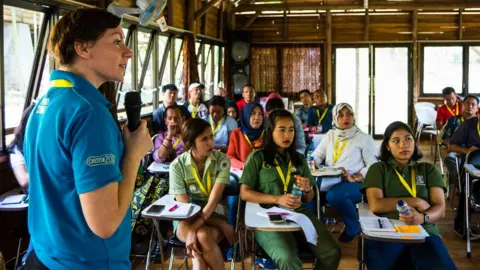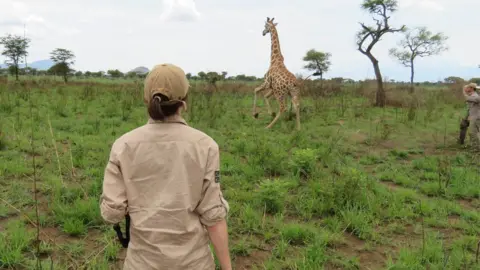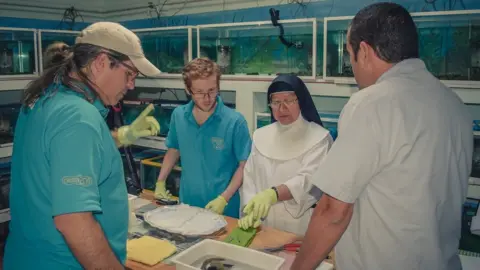Chester Zoo reveals 'bold' plan to tackle extinctions
 Chester Zoo
Chester ZooChester Zoo's "bold" 10-year plan to combat wildlife extinction will see it train 5,000 conservationists and improve more than 600,000 acres of habitat, it has revealed.
The charity's Conservation Masterplan also aims to stop the decline of 200 threatened species by 2031.
Science director Dr Simon Dowell said the plan was "what conservation in the 21st Century looks like".
In February, the zoo said its "vital" work had been financially hit by Covid.
 Chester Zoo
Chester ZooA spokeswoman said the new plan would encourage conservation breeding of 150 species and "empower 10 million people to live more sustainably".
She said the new conservation work will take place across the UK, Europe, Central and South America, Africa and Asia, and target areas of Uganda, Nigeria, Gabon, the Philippines and Indonesia.
She said the plan, which also "sets out a path for the zoo to achieve carbon net zero and zero waste in its operations by 2030", would draw on the charity's "decades of experience of working with wildlife... and its expertise in science and conservation".
She added that the amount of money dedicated to the plan would depend on how much money the zoo raises through donations and tickets sales.
 Chester Zoo
Chester ZooIn February, the charity revealed the Covid-19 pandemic had led to a £10m loss, which had put many of its projects on hold.
The zoo's chief executive Jamie Christon said these were "undeniably challenging times" to be embarking on the plan, but it could not wait.
"The pandemic has focused our minds and our precious resources on what really matters," he said.
"Conservation simply cannot wait. The time for action, is now. If we act quickly, we can begin to reverse the decline and put it right."
Dr Dowell said the planet "cannot go on losing species at the rate we are" and the plan was the zoo's "statement of intent".
"It's a bold, clear set of targets - a roadmap for how we're going to deliver real conservation impact over the next decade," he added.
"This is what conservation in the 21st century looks like."

Why not follow BBC North West on Facebook, Twitter and Instagram? You can also send story ideas to [email protected]
